The Most Affordable Places to Live in Langley BC | Langley Real Estate
The 4 Most Affordable Neighborhoods in Langley, BC
Are you thinking about moving to Langley, BC, but want to find the most affordable areas to live? Whether you're a first-time homebuyer, a growing family, or an investor, Langley offers great housing options at lower prices compared to Vancouver and other parts of the Lower Mainland.
In this guide, we’ll break down the top four most affordable neighborhoods in Langley, starting from the higher end of price points and working our way down.
1. Brookswood – Suburban Charm with Large Lots
Located in southwest Langley, Brookswood is a beautiful, tree-lined neighborhood that offers a blend of urban and rural living. It’s one of the most affordable areas for detached homes and is perfect for those seeking peaceful surroundings, spacious yards, and a close-knit community.
Why Choose Brookswood?
✔ Affordable compared to Greater Vancouver – Great for families looking for more space
✔ Large, private lots – Many homes sit on 10,000+ sqft lots
✔ Strong community feel – Family-friendly with excellent schools
✔ Great for nature lovers – Close to Campbell Valley Regional Park
✔ Limited housing types – Mostly detached homes, with some mobile home parks
A Welcoming, Connected Community
Brookswood’s charm goes beyond its homes. Residents often remark on the welcoming, family-oriented vibe, where neighbors are quick to say hello and newcomers feel at ease. The community atmosphere is fostered by local events like farmers’ markets, seasonal parades, and celebrations such as the Fort Langley Cranberry Festival, all just a short drive away. These gatherings offer a chance to mingle, support local artisans, and build lasting connections—giving Brookswood a small-town heart with all the perks of city living close at hand.
Family-Friendly Amenities
Excellent public and private schools are nearby, making Brookswood a top pick for families. Community centers and libraries are conveniently spread throughout the area, providing access to sports, arts, and recreation programs for all ages. Whether your weekends are spent exploring local parks or cheering on a community sports team, Brookswood makes it easy to get involved and feel at home.
Housing Snapshot
🏡 Detached Homes: 3-bed, 2.5-bath, ~1,600 sqft, built in the 1970s, on large lots (~11,000 sqft)
🏢 Condos & Townhomes: Currently no condos or townhomes, but new developments are planned
Who Should Move Here?
- Families looking for more space at an affordable price
- Buyers who want detached homes with a big yard
- Nature lovers and outdoor enthusiasts
Average Home Price in Brookswood: 🔽 Lower than most of Langley, making it a great entry-level option for detached homebuyers.
2. Walnut Grove – Affordable Family-Friendly Living
Located in North Langley, Walnut Grove is a perfect balance of suburban convenience and affordability. It’s one of the best places to live if you want easy access to Highway 1, great schools, and plenty of shopping and dining options.
Why Choose Walnut Grove?
✔ Great for families – Safe, community-driven area with top-rated schools
✔ Excellent location – Quick access to Highway 1 & Golden Ears Bridge
✔ Recreational facilities – Home to Walnut Grove Community Centre (Olympic-sized pool, gym, skate park)
✔ Variety of housing options – Townhomes, condos, and detached homes available
Housing Snapshot
🏡 Detached Homes: 3-bed, 2.5-bath, ~2,000 sqft, built in the early 1990s, on 6,000 sqft lots
🏘 Townhomes: 3-bed, 2-bath, ~1,400 sqft, built in the 1990s
🏢 Condos: 2-bed, 2-bath, ~850 sqft, built in the 2000s
But Walnut Grove is just one highlight in Langley’s thriving rental market. The area offers a wide range of choices to suit any lifestyle:
- Modern condos and apartments can be found in Langley City for those seeking a vibrant urban feel.
- Townhomes and basement suites are popular options in neighborhoods like Willoughby Heights and Walnut Grove, ideal for small families or young professionals.
- If you’re searching for more space, family homes for rent are readily available in nearby communities such as Aldergrove and Brookswood.
Whether you’re looking to buy or rent, Langley’s neighborhoods offer plenty of flexibility, making it easy to find the right fit for your needs.
Who Should Move Here?
- Families looking for affordable homes with top schools nearby
- Commuters needing quick access to Vancouver & Maple Ridge
- Buyers wanting a mix of condos, townhomes, and detached homes
Average Home Price in Walnut Grove: 🔽 Lower than Willoughby and Fort Langley, but higher than Aldergrove.
3. Langley City – The Heart of Langley with Affordable Housing
Langley City is a vibrant, urban center with some of the most affordable housing in Langley. It’s the hub of commercial and retail activity, making it the best option for those who want city-style living without Vancouver’s high prices.
Why Choose Langley City?
✔ Affordable for first-time buyers – Great entry-level homes
✔ Excellent public transit – Bus routes & future SkyTrain extension (coming 2028)
✔ Walkable community – Close to shops, restaurants, and schools
✔ Tons of entertainment – Home to Willowbrook Mall, restaurants, bars, and parks
Transportation Costs: Langley vs. Downtown Vancouver
While Langley is known for its suburban charm, getting around is easier than you might think. Most neighbourhoods are served by reliable bus routes, and the much-anticipated SkyTrain extension set for 2028 will make commuting to Vancouver, Surrey, and other parts of Metro Vancouver even more convenient. For now, many residents rely on their cars, but transit options are steadily improving.
If you’re considering public transit, monthly passes run about $151, and gas prices are typically a bit lower than downtown Vancouver. Car insurance rates remain consistent across BC. As Langley’s local job market continues to grow, more people are able to work close to home, but for those who commute, enhanced connectivity is just around the corner.
When considering your budget, you’ll be happy to know that getting around Langley is generally easier on your wallet than downtown Vancouver. Here’s how the numbers usually stack up:
- Gas prices tend to be a bit kinder compared to the downtown core, so filling up your tank won’t sting as much.
- Monthly transit passes hover around $151, giving commuters a predictable cost each month—even if the SkyTrain extension is still in the works.
- Car insurance rates remain steady throughout BC, so you won’t see wild price differences just for calling Langley home.
- While some Langley neighbourhoods are car-dependent now, the anticipated SkyTrain expansion promises a future with more public transit options and increased convenience for non-drivers.
In short, residents enjoy slightly lower day-to-day transportation costs, especially if you drive regularly.
Dining Out in Langley: What to Expect
Looking to grab a bite out? Langley offers wallet-friendly options when it comes to eating at local restaurants. Whether you’re enjoying a solo lunch or a casual dinner with friends, you’ll find that most meals typically range from $18 to $20 per person at many local eateries. Compared to neighbouring cities, dining out here won’t break the bank—making it easy to indulge in everything from sushi spots to cozy cafés without stretching your budget.
Plus, with the area’s growing selection of restaurants, there’s always something new (and affordable) to try just a stroll away.
Housing Snapshot
🏡 Detached Homes: 3-bed, 2-bath, ~2,000 sqft, built in the late 1970s, on 7,000-8,000 sqft lots
🏘 Townhomes: 3-bed, 2.5-bath, ~1,300 sqft, built in the early 1990s
🏢 Condos: 2-bed, 2-bath, ~1,000 sqft, built in the 1990s and 2000s
Who Should Move Here?
- Young professionals and first-time buyers looking for affordable condos & townhomes
- Those who want easy public transit & walkability
- Investors looking for future value appreciation due to the SkyTrain expansion
Average Home Price in Langley City: 🔽 20-30% lower than the rest of Langley, making it one of the most affordable urban options.
4. Aldergrove – The Most Affordable Neighborhood in Langley
If you’re looking for the cheapest homes in Langley, Aldergrove is your best bet. Located in southeastern Langley, this area offers small-town charm with the lowest real estate prices in the city.
Why Choose Aldergrove?
✔ Most affordable homes in Langley – Best for budget-conscious buyers
✔ Growing community – New developments are starting to appear
✔ Great access to parks & recreation – Close to Aldergrove Credit Union Community Center
✔ Quick access to Highway 1 & U.S. border
Housing Snapshot
🏡 Detached Homes: 4-bed, 2-bath, ~1,400 sqft, built in the early 1980s, on 6,000-7,000 sqft lots
🏘 Townhomes: 3-bed, 1.5-bath, ~1,200 sqft, built in the 1980s
🏢 Condos: 2-bed, 2-bath, ~900 sqft, built in the mid-1990s
Who Should Move Here?
- First-time buyers looking for the lowest home prices in Langley
- Families wanting affordable detached homes with a backyard
- Those who enjoy a quieter, small-town lifestyle
Average Home Price in Aldergrove: 🔽 30% lower than the rest of Langley, making it the cheapest option for detached homes.
Langley Rental Market Overview
Wondering what it’s like to rent in Langley? Good news—the city offers plenty of options for every lifestyle and budget.
Rental Options in Langley
- Contemporary condos and apartments in central Langley City, perfect for professionals or couples who want a modern touch and walkable amenities.
- Townhomes and basement suites are sprinkled through newer neighborhoods like Willoughby Heights and Walnut Grove—great for small families or roommates looking to split costs.
- Detached family homes for rent are most common in areas such as Aldergrove and Brookswood, often featuring large yards, garages, and extra space for growing kids or pets.
Affordability & Perks
Rental prices in Langley generally sit below those of most Metro Vancouver suburbs. This makes Langley popular among renters looking to enjoy extra space, in-suite laundry, garages, or even their own backyard—without Vancouver price tags.
Pro Tip: If possible, search for rentals during the off-peak months (late fall or winter) when competition is lighter, and you might snag a better deal.
Are Utilities Included in Langley Rentals?
In Langley, what you get included with your rent can be a bit of a mixed bag. Many rental units will cover essentials like water and garbage collection, so you might be pleasantly surprised to have a few less bills to juggle each month. However, electricity and heating are usually the renter's responsibility—plan for around $150 per month for these, along with water if it’s not included.
Internet isn't typically bundled with rent, so you’ll want to budget separately for providers like Telus or Shaw, with costs similar to what you'd find across Metro Vancouver.
If keeping monthly expenses predictable is important to you, check each listing carefully or chat directly with the landlord or property manager—some buildings (especially apartments and condos) are more likely to include select utilities than detached homes or townhouses.
What Does Food Cost in Langley?
While you’re saving on your home, you’ll be glad to know your grocery bill in Langley won’t break the bank either. For most families of four, you can expect monthly grocery expenses to land between $1,000 and $1,300, depending on your eating habits and whether you’re shopping at places like Save-On-Foods, Superstore, or Costco.
Prefer grabbing a bite out instead of cooking every night? Good news: dining in Langley is also kinder on your wallet. You’ll typically pay $18–$20 per person for a casual meal at a local restaurant—far less than what you might find in downtown Vancouver or other nearby cities.
Commuting Costs: Langley to Vancouver or Surrey
If you’re considering Langley as your new home base, chances are you’ll want to factor in the daily commute—especially if work or school draws you into Vancouver or Surrey.
What Will You Spend Getting Around?
- Gasoline Costs: You’ll pay a little less at the pump compared to Vancouver proper, but with most errands and work trips requiring a car, fuel bills can still add up.
- Transit Options: A 1-zone adult TransLink monthly pass is around $151, covering bus and SkyTrain rides—a solid choice if you prefer to leave the car at home. Most residents, however, rely on personal vehicles due to the current transit setup.
- Insurance: Car insurance in Langley doesn’t offer much relief; rates are standardized across BC.
What About Future Transit?
Right now, many Langley neighborhoods are best navigated by car. However, the much-anticipated SkyTrain extension promises to make commuting more efficient and could lower everyday costs for those heading in and out of the city.
Bottom Line: Whether you drive or transit, expect transportation to be a notable monthly expense—but with new transit infrastructure on the horizon, the daily trek to Vancouver or Surrey is only getting easier.
How Do Property Taxes in Langley Compare to Vancouver?
One of the perks of considering Langley is that, although the property tax rate here is a touch higher per $1,000 of assessed value than in Vancouver, the actual amount you pay is usually much less. That’s because homes in Langley are generally more affordable to begin with.
For example:
- If you buy a house in Langley for around $800,000, your annual property taxes are likely to come in at about $2,860.
- In contrast, Vancouver’s higher home prices mean you could easily pay over $4,000 in property taxes for a typical home.
The bottom line? Even though the tax rate is a bit higher, the savings on a lower-priced Langley home typically outweigh that—leaving more room in your budget for everything else.
Job Opportunities in Langley
Langley isn’t just about affordable living—it’s also a hub for diverse job opportunities. If you're interested in building your career locally, you’ll find growing prospects in several sectors, including:
- Retail: From big box stores to boutique shops, Langley’s retail scene is bustling and offers a wide range of entry-level and management positions.
- Education: Whether you’re a teacher, administrator, or support staff, the public and private schools in Langley are often on the lookout for skilled professionals.
- Manufacturing: Langley is home to a number of manufacturing plants, providing stable employment for skilled tradespeople and those interested in production roles.
- Health Services: With new clinics, pharmacies, and care facilities opening up, there’s consistent demand for healthcare workers ranging from nurses to administrative staff.
On top of all this, the rise in remote work means Langley’s spacious and affordable homes are becoming even more attractive to professionals who work from home and want extra space for a dedicated office or studio.
Average Cost of Utilities and Internet in Langley
Curious about your monthly expenses after moving in? Utilities in Langley are generally in line with the provincial average. For a typical apartment or modest house, you can expect to pay about $150 per month total for electricity, heating, and water.
When it comes to internet, prices are competitive with the rest of Metro Vancouver. Providers like Telus and Shaw offer high-speed plans, so you’ll find most households spend between $80 and $120 per month for reliable service.
One bonus: if you’re renting, some properties include water and garbage pickup in the monthly rent, which can add a little more padding to your budget.
Pros and Cons of Moving to Langley, BC
If you're weighing whether Langley is the right place to call home, let's look at the big picture—the upsides and a few things to consider before you pack up the moving boxes.
The Upsides
Affordability:
One of Langley’s biggest draws is the price tag. Homes are notably less expensive than those in Vancouver—making ownership or spacious rentals much more realistic for families, young professionals, and investors. Whether you’re eyeing a sleek new condo, a budget-friendly townhouse, or a detached home with a backyard, your dollar simply goes further here.
Family-Friendly Vibe:
Langley has a reputation for being inviting and community-minded. Picture neighborhood parades, local farmers’ markets, and festive events like the Fort Langley Cranberry Festival adding to the small-town charm—all while major amenities are just minutes away. Schools, community centers, and parks are spread out across the area, making it easy for your family to plug into activities.
Nature and Outdoor Living:
Do you love the outdoors? Langley checks that box with lush parks, scenic bike paths, sprawling trails, and golf courses. Whether it’s horseback riding in Campbell Valley Regional Park, riverside walks at Derby Reach, or just a Saturday at the playground, nature is always close by.
Accessible Amenities:
Shopping is convenient, thanks to malls like Willowbrook Shopping Centre and a downtown dotted with local cafés and boutiques. There's a deliciously varied dining scene with everything from cozy brunch spots to farm-to-table bistros, breweries, and wineries. Entertainment? Think the Greater Vancouver Zoo, sports venues, and year-round events for all ages.
Growing Economy:
While commuting to Vancouver or Surrey is common, Langley’s own job market is expanding, especially in retail, education, healthcare, and manufacturing. Plus, with work-from-home more popular, the area’s affordable, spacious homes make home offices easy to set up.
Improving Transit Connections:
Car ownership is still the norm, but the SkyTrain expansion on the horizon will enhance public transit and make getting to Metro Vancouver a breeze—even if you prefer not to drive.
Things to Consider
Car Dependency:
While Langley boasts a lot of conveniences, it’s definitely suburban—so most residents rely on personal vehicles to get around for daily errands, work, and recreation. Public transit is improving, but if you’re used to city living on foot or bike, this is a shift.
Property Taxes:
Langley’s property taxes are slightly higher per $1,000 of home value than Vancouver, though the overall bills are still lower thanks to more reasonable home prices.
Commuting:
A significant number of locals commute to neighboring cities for work. If your job is in Vancouver or Surrey, be prepared for some time on the road, at least until public transit options expand.
Utility and Living Costs:
Monthly bills like utilities and internet are consistent with the region. Groceries and dining out tend to be slightly more affordable than in Vancouver, but it all depends on your lifestyle.
Community Pace:
Langley delivers on laid-back living. For some, that’s a pro, but if you crave big-city hustle, you might find the quieter neighborhoods less stimulating.
Considering these pros and cons can help you decide if Langley fits your budget, commute preferences, and lifestyle goals as you hunt for your ideal neighborhood.
Final Thoughts – Which Affordable Neighborhood is Right for You?
Each of these four neighborhoods in Langley offers affordable living with different perks:
- 🏡 Brookswood – Best for large lots & suburban charm
- 🏘 Walnut Grove – Best for families & commuters
- 🏙 Langley City – Best for walkability, transit & investment potential
- 🌲 Aldergrove – Best for budget-conscious homebuyers
If you’re considering moving to Langley and want to explore which neighbourhoods would suit you best, I’d be happy to help!
📞 Book a Call with me today to discuss your options: Schedule a Consultation
📢 Subscribe to my YouTube Channel for more Langley real estate insights: Living in the Lower Mainland
🏡 Looking for Homes in Langley? Browse listings: Langley Homes for Sale
📕 Download our FREE Langley Relocation Guide: Ultimate Langley Relocation Guide
Categories
Recent Posts
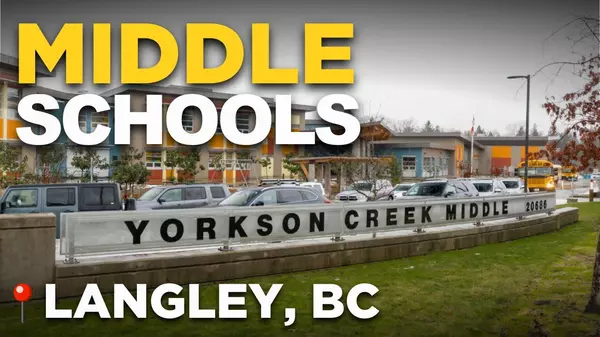
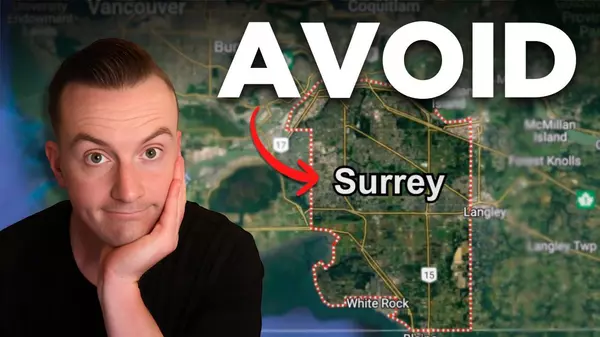




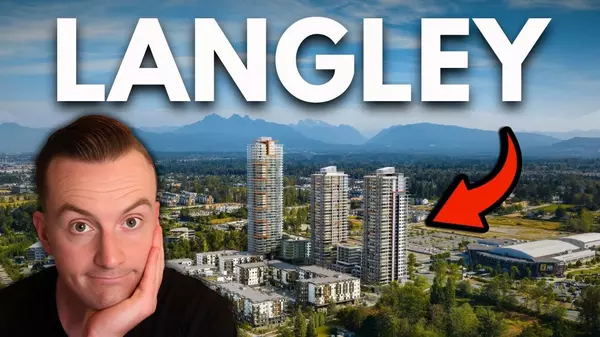

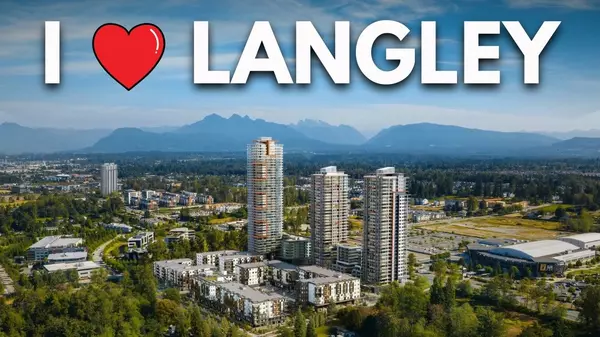
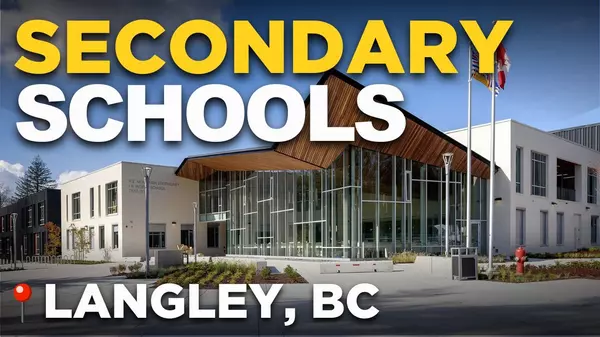
GET MORE INFORMATION

